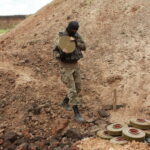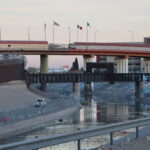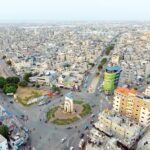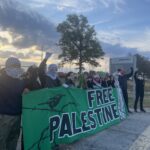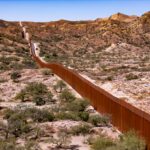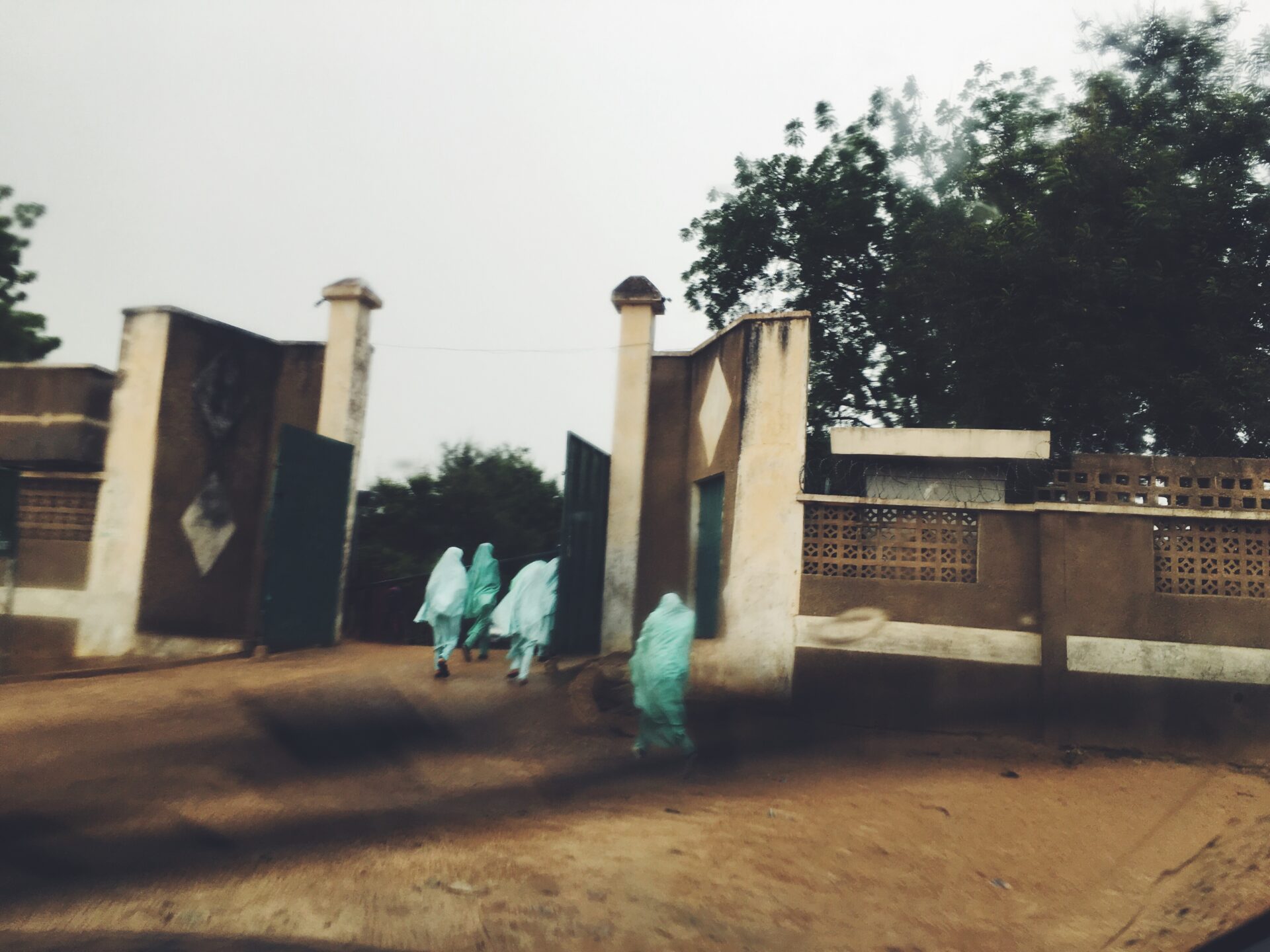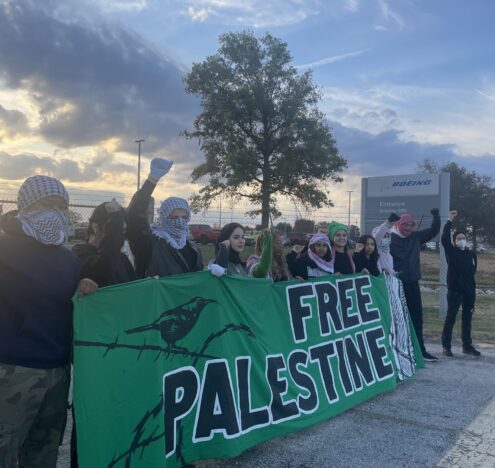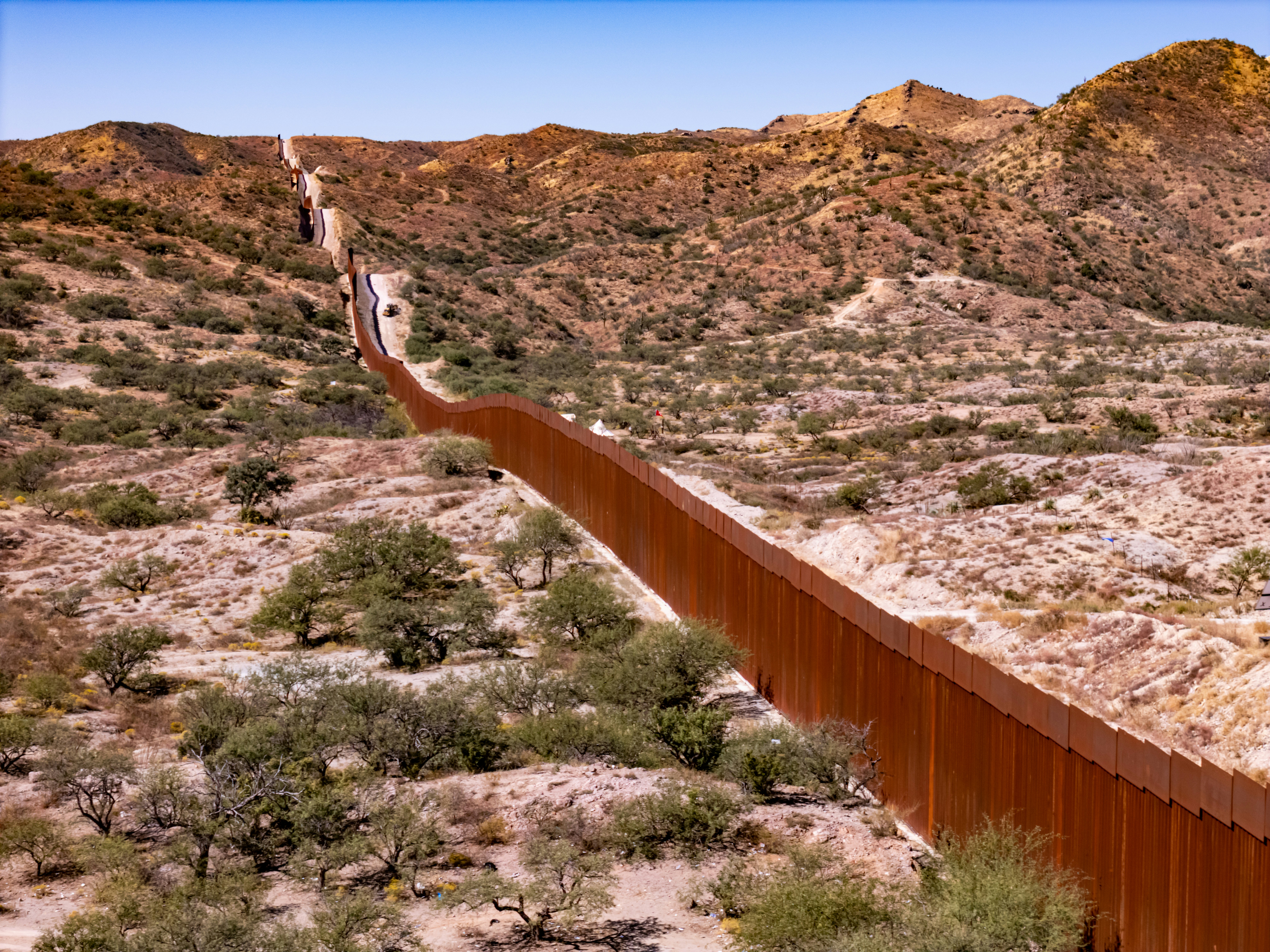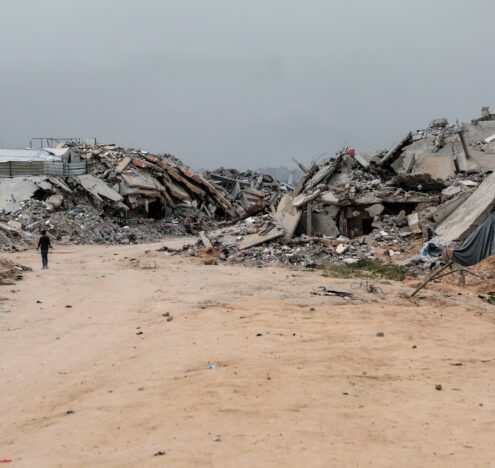When Muhammad Orjiegbulam embraced Islam three decades ago, his family and friends considered him an outcast. They simply couldn’t fathom why an Igbo like him should embrace a religion associated with the Hausa and Fulani tribes, whom many Igbo people deeply resent for their role in suppressing the Igbo state of Biafra during the secession attempt in 1967.
Now a popular Islamic cleric based in Owerri, Imo state in southeast Nigeria, Orjiebulam recalled being accused of allegedly accepting exorbitant sums from affluent Muslim Hausa men to trade his Christian beliefs for Islam, as if his spiritual transformation was merely a commodity for sale.
In 2013, when he orchestrated the conversion of 18 Igbo men from Christianity to Islam, it was rumored that he was manipulated by influential governors to entice the converted men into Islam with tempting financial incentives.
For that, Orjiegbulam said that the leader of the pro-secessionist group Indigenous People of Biafra (IPOB), Nnamdi Kanu, who has been detained since 2021 and facing trial for treason, threatened to kill him. “Nnamdi Kanu called me on a live stream on Facebook and threatened to kill me. He said that over his dead body he would live to see Islam grow in southeast Nigeria,” Orjiebulam said.
Orjiebulam is part of the reportedly 13,500 Igbo Muslims who make up a minority in South-East Nigeria and are stigmatized by some of their fellow Igbos on the basis of their faith. Their adherence to Islam within a predominantly Christian Igbo ethnic group often leads to persecution, social and political marginalization, thus infringing on their freedom of religion.
Narratives about identity and religion abound in the discourse about Nigeria, yet the broad-stroke generalizations about the country belie the complex intersectionality of identity within and across ethnic and religious groups. The experiences of Igbo Muslims highlight the micropolitics of insecurity and the granularity of community tensions.
Islam in Southeast Nigeria
The Igbos, one of Nigeria’s major ethnic groups, have an estimated population of approximately 40 million individuals, making up a significant portion of the country’s total population of over 200 million. They primarily reside in the southeastern region of Nigeria, popularly referred to as Igbo land.
Historically, the Igbo people had early interactions with missionaries in the 19th century, leading to a predominant embrace of Christianity in the South-East. As a result, many Igbo individuals relinquished their traditional religious practices in favor of Christianity, which has become a prominent faith in the region.
During the colonial period, Islam was introduced into Igbo land, due to the activities of itinerant Muslim traders who entered the northern parts of the South-East from the north-central region of Nigeria.
The sentiment against Islam among some Igbo people can be traced back to the events surrounding the Igbo struggle for independence in 1967.
Following a coup led primarily by young Igbo officers in 1966, a counter-coup took place, resulting in the deaths of many Igbo military officers and thousands of Igbo civilians in the northern and western regions of Nigeria.
These massacres led the Igbo-dominated Eastern Region of Nigeria to declare its secession from the country, establishing the Republic of Biafra. Nigeria subsequently invaded Biafra in July 1967, resulting in a bloody war and the loss of three million civilian lives. Biafra officially surrendered to Nigeria in January 1970.
The resistance faced by the Igbo people during the war, particularly from the predominantly Muslim northern region, took on a religious dimension. The defeat of the Biafrans was portrayed by some as a victory for Islam and a defeat for Christianity in the South-East.
Even after the Biafran war, Igbo individuals have been victims of religious skirmishes, especially in the northern region of Nigeria.
Additionally, due to the rise of Islamic jihadists and acts of terrorism, many Igbos view adherents of Islam with suspicion, considering them potential terrorists. This perception has been reinforced by the emergence of the Boko Haram insurgency in northeast Nigeria and the global wave of Islamic extremism.
Boko Haram is a notorious terrorist organization that has gained a strong foothold in northeastern Nigeria and operates in neighboring countries like Chad and Cameroon. Their ideology opposes Western values and seeks to establish an Islamic state in Nigeria through acts of violence and terror.
The group gained international attention in 2014 when they abducted over 200 schoolgirls from their dormitory in Borno, Nigeria.
While the sentiments against Islam do not represent the views of all Igbo individuals, they have contributed to deadly religious confrontations in the southeast, resulting in violence against Igbo Muslim communities.
Narratives about identity and religion abound in the discourse about Nigeria, yet the broad-stroke generalizations about the country belie the complex intersectionality of identity within and across ethnic and religious groups.
For instance, in November 2020, gunmen targeted Muslim communities in Enugu state. The perpetrators went on a rampage, destroying properties and setting two mosques ablaze, leading to numerous injuries. The attack was triggered by an altercation between a Muslim woman and a tricycle driver.
Earlier in 2017, unknown arsonists set ablaze the central Mosque at Ogurute, Enugu state, causing significant damage.
In 2020, armed gunmen once again targeted a mosque, this time in Imo state, resulting in its destruction and the tragic loss of one life. Additionally, that same year, the Igbo Muslim community in Imo and Rivers states experienced a devastating toll, with 11 individuals losing their lives in violent incidents.
Again, in 2022, the Muslim community in Ebonyi state was shaken when a prominent sheik was fatally shot in his own home.
Regrettably, these acts of violence and killings often remain underreported, leaving them unaddressed and allowing them to persist. Consequently, a significant number of Igbo Muslims from the Southeast feel compelled to flee to the predominantly Muslim north, where they believe they can freely practice their religion without fear.
Lack of Awareness
Amidst this scenario, Idrees Ngene, the president of the Igbo Muslim Youths Association, said that the hostility from non-Muslim Igbos is hinged on a lack of awareness. Recalling an incident where he was denied a slot in a government-funded program because of his name, he noted that if only people could accept that individuals have the right to practice any religion they want, half of the problem would be solved.
“I submitted my name to be shortlisted for a government-funded program for youth. But would you believe that the Igbo man who was in charge of collecting names said I wouldn’t be shortlisted for the opportunity because of my Muslim name? He questioned why I was bearing a Muslim name as an Igbo person. And true to his words, I wasn’t shortlisted,” Ngene narrated.
Ngene, who is now based in Baltimore in the United States, is using social media to raise awareness regarding the ill treatment Igbo Muslims endure.
However, Igbo Muslims also face attacks on social media. Amaal Oluchi, a university student known for sharing Islamic content on Twitter, said she gets bullied on the platform for her faith on a daily basis. She noted that although her parents were undisturbed when she converted from Christianity to Islam in 2020, her followers on Twitter have been very hostile. “I get attacked on a daily basis, and I’m trying to get used to it. I once took down a post I made because many people were just saying that I converted because of money and that I am useless and should go and commit suicide. Frankly, those words are hurting,” Oluchi said.
Even IPOB has been known to spread hate, particularly targeting Igbo Muslims on social media. They utilize various social media platforms as vehicles for the dissemination of divisive and harmful content to falsely assert that Igbo Muslims are Fulani in disguise. This creates an atmosphere of animosity toward this specific group within the Igbo community.
The implications of these actions are not to be taken lightly, as IPOB possesses considerable influence and commands the loyalty of numerous armed gangs.
Saboteurs
Numerous Igbo Muslims in Nigeria have faced targeted attacks by secessionist groups who perceive them as collaborators sponsored by the Hausa–Fulani Muslim community to suppress the Biafra agitation.
In recent times, the South-East region of Nigeria has experienced a wave of violent assaults orchestrated by anonymous armed secessionist fighters commonly referred to as unknown gunmen. These fighters have frequently pledged allegiance to the pro-secessionist group IPOB and vowed to carry out attacks against the “enemies of Biafra” until the release of Nnamdi Kanu and the restoration of Biafra.
Both police and military installations have been incessantly targeted, resulting in the loss of lives and injuries among security personnel and civilians.
Three years ago, in Imo state, a renowned Igbo Muslim activist, Aishat Obi, was attacked by gunmen at a mosque. Despite the terrifying encounter, she survived the attack, albeit sustaining a gunshot wound in her leg. Tragically, the deputy Imam and his driver lost their lives in the incident.
“When I converted to Islam in 2016, bloggers said that a wealthy Muslim man had offered me money to change my faith. It’s sad that the average Igbo person does not believe that an Igbo should be a Muslim. They call us Hausa-Fulani. They call us saboteurs. But they forget that even the Hausa people have Christians among them. Should people now be discriminated against because of their religion?” she said.
The Chief Imam of Imo state, Suleiman Njoku, emphasized the importance of religious freedom and the right for everyone to practice their chosen faith. “Islam is a universal religion that transcends tribal boundaries,” he asserted. “Every individual should have the freedom to practice their religion, as it contributes to fostering peace in our society. The notion that Igbos should not embrace Islam stems from ignorance and represents a primitive way of thinking. Instead of perpetuating violence and division, let us direct our attention towards matters that unite us as a community.”
Even in the political arena, Igbo Muslims face significant underrepresentation. In contrast to other regions that have elected governors from diverse religious backgrounds, none of the five southeastern states has ever had an Igbo Muslim governor.
“Igbo Muslims face the unfortunate reality of not being fully recognized as Igbos, which poses significant challenges for their political aspirations. The prevailing narratives surrounding this issue have created formidable barriers to their political advancement,” Njoku noted.
The government’s response in the South-East region has predominantly focused on the construction and reconstruction of mosques following religious conflicts, leaving other critical issues unaddressed. This has raised concerns for Rakiya Munkailu, the founder of the Ummah Peace Foundation, a community-based non-profit organization dedicated to fostering peaceful collaboration among individuals from different faiths in the southeast. Munkailu strongly emphasized the urgent need for the government to invest in initiatives that promote harmony among people of diverse religious backgrounds.
Munkailu further asserted, “It is crucial for the government to take firm action against individuals who exploit religion to instigate violence. The security situation in the southeast is deeply concerning, and the pervasive fear affects everyone. If this issue is not given proper attention, it has the potential to escalate into a full-blown multifaceted crisis in the country.”
Islamophobia Around the World
Last year, the UN took a significant step in the global fight against Islamophobia by declaring March 15 as the International Day to Combat Islamophobia. This recognition reflects the growing concern over the alarming rise of suspicion, discrimination, and outright hatred towards Muslims, which a recent report by a UN special rapporteur on freedom of religion or belief described as having reached “epidemic proportions.”
Idris Ibrahim Alao, a legal practitioner and lecturer of Islamic Law at the College of Law, Fountain University, Osogbo, Nigeria, emphasized that Igbo Muslims should feel empowered to seek redress in the law courts if their rights are infringed upon. He urged Nigerians to appreciate and embrace the religious diversity within the country, as failing to address religious discrimination in a multicultural society like Nigeria can lead to a crisis.
“There’s a need for collaborative efforts in the nation by the relevant stakeholders to work towards achieving an environment where religious harmony abounds,” Alao added.



